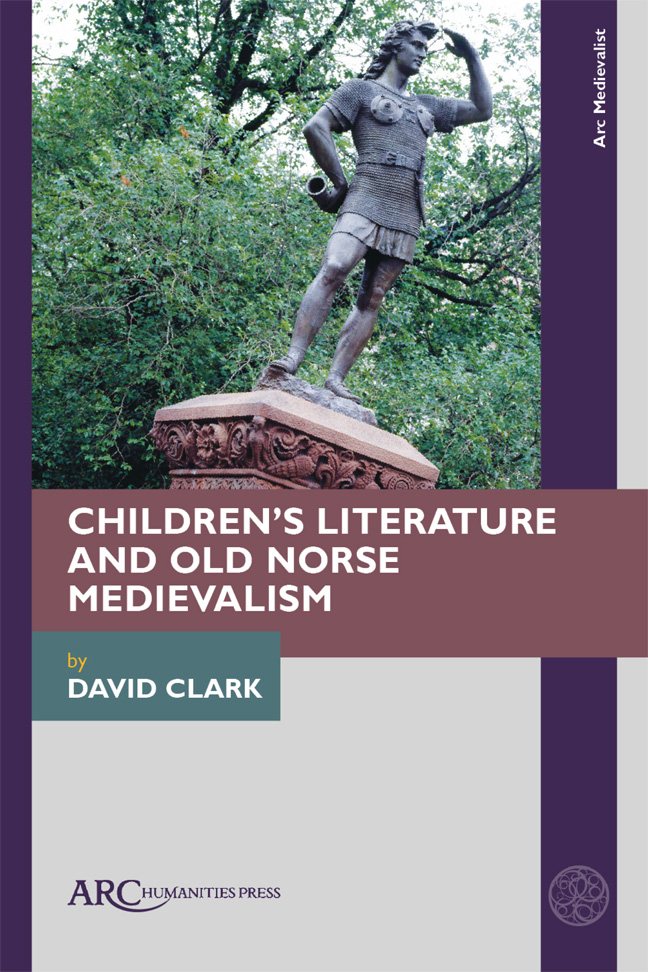Book contents
- Frontmatter
- Contents
- Acknowledgements
- Dedication
- Introduction: The End
- 1 Age-Related Categories
- 2 Generic Categories
- 3 Transformational Fantasy
- 4 Horned Helmets and Comic Anachronism
- 5 Viking Reputation
- 6 Runes and Magic
- 7 The Power of Story
- 8 Race and Ethnicity
- 9 Heroism
- 10 Viking Masculinity
- 11 Viking Femininity
- 12 Viking Sex and Gender
- 13 Bowdlerization
- 14 Sexuality
- 15 Ecological Threat
- 16 Norse Medievalism in Alan Early's Father of Lies Trilogy
- 17 Avoiding the End of Days: K. L. Armstrong and M. A. Marr's Blackwell Pages
- 18 Rick Riordan's Magnus Chase Series and Norse Medievalism
- Conclusion
- Select Bibliography of Frequently Cited Works
- Index
13 - Bowdlerization
Published online by Cambridge University Press: 17 February 2024
- Frontmatter
- Contents
- Acknowledgements
- Dedication
- Introduction: The End
- 1 Age-Related Categories
- 2 Generic Categories
- 3 Transformational Fantasy
- 4 Horned Helmets and Comic Anachronism
- 5 Viking Reputation
- 6 Runes and Magic
- 7 The Power of Story
- 8 Race and Ethnicity
- 9 Heroism
- 10 Viking Masculinity
- 11 Viking Femininity
- 12 Viking Sex and Gender
- 13 Bowdlerization
- 14 Sexuality
- 15 Ecological Threat
- 16 Norse Medievalism in Alan Early's Father of Lies Trilogy
- 17 Avoiding the End of Days: K. L. Armstrong and M. A. Marr's Blackwell Pages
- 18 Rick Riordan's Magnus Chase Series and Norse Medievalism
- Conclusion
- Select Bibliography of Frequently Cited Works
- Index
Summary
ALTHOUGH SEX AND sexuality are prominent themes in some children's (and especially Young Adult) literature, literature for children has historically been subject to a number of restrictions on content. Although explicit censorship has become less of a factor in recent times and some novels even for quite young children indeed centre what used to be called “adult” themes, there is still a widespread perception that novels aimed at different age groups will take the “appropriate” approach to content like swearing (US: cursing), romance, kissing, sex and sexuality, drugs, alcohol, and child or animal abuse.
It's possible to detect some of the effects of this dynamic when medievalist authors omit or tone down elements of their Norse sources. This often applies to certain kinds of violence, but it is most noticeable (and arguably has the most problematic consequences) when it applies to sexual content. Examining some aspects of this process paves the way for a consideration of quite nuanced and complex dynamics that arise when authors seek either to explore or to elide sexuality in a Norse medievalist context.
Grim Gruesome: Viking Villain
Rosalind Kerven has published engaging retellings of several Norse narratives for a general audience. Her Grim Gruesome series (2008–11) comprises four short narratives in medieval settings in which a straightforward good and evil binary is preserved. The first, The Cursed Sword (2008) is set in Norway and introduces the eponymous villain. The main protagonist, a young pig-keeper named Bjarni, meets a tall, cloaked stranger whose face is hidden. The stranger tells Bjarni to go down to the road but mysteriously refuses to say why, quoting “Odin All-Father” saying “The quick shall catch the prize!” This stranger, Grim, is fond of quoting Odin this way and, like Odin, he often appears cloaked and disguised. His manipulative and treacherous character also may owe something to Odin's reputation for unsavoury or compromising behaviour and dubious morality in Havamal. However, given Loki's penchant for disguise, for example, as an old woman (153), Grim may also owe something to Norse myth's other notoriously amoral character.
- Type
- Chapter
- Information
- Children's Literature and Old Norse Medievalism , pp. 111 - 116Publisher: Amsterdam University PressPrint publication year: 2023

